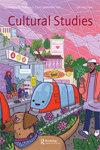幽灵肢体的暴力幽灵
IF 1.6
3区 社会学
Q1 ANTHROPOLOGY
引用次数: 0
摘要
侵占和挪用是无害的。在《Khanna》一书的结论中,分析了法农对身体与被殖民者的反殖民修辞之间脱节的阐述。利用法农的权威,她能够概括她从亚印度大陆小说中提取的抽象概念,寻求对其他地方非殖民化的描述。这篇文献中探讨的身体功能障碍解释了殖民者之间存在的麻痹性紧张关系,他们的目标不是“成为”定居者,而是“取代”定居者。这里的区别当然是至关重要的:正如Khanna所说,“成为的行为”本可以带来一个历史主题,并为非殖民化的另一个实例铺平道路。现实主义在多大程度上扼杀了色情的革命热情,或者将其视为纯粹的色情,这是作者提出的一条有希望的论点。事实上,Khanna间接地要求我们重写民族主义经典,以区分革命艺术和伪革命艺术。在这里,Khanna认为,如果民族主义者更多地关注现代主义而不是现实主义,殖民地的印度人或阿尔及利亚人本可以在自由的政治实例化之外重新获得自由。不同的是,现实主义可能是也不可能是一种赋权的表达方式,以激发反对殖民主义的民族主义事业的行动,但在独立后,现实主义成为了一种负担。尽管如此,《内脏逻辑》的逻辑似乎在指责文学和文化精英未能激发出某种能够以某种方式扭转后殖民功能障碍的灵感。在经历了可能要求很高的早期章节后,后殖民主义的学生们会发现这本书非常有收获,坎纳的贡献将重塑未来几代人的文学学术,就像雷蒙德·威廉姆斯的《乡村与城市》(1973)或爱德华·赛义德的《东方主义》(1978)所做的那样。本文章由计算机程序翻译,如有差异,请以英文原文为准。
Violent spectre of ghost limbs
sion and appropriation are harmless preoccupations. In the conclusion of the book Khanna analyses Fanon’s elaboration of the disjuncture between the body and the anticolonial rhetoric of the colonized. Drawing on Fanon’s authority enables her to generalize her abstractions drawn from the fiction of the sub-Indian continent, seeking an account of decolonization elsewhere. The bodily dysfunctions explored in this literature explain the paralyzing tensions that exist among the colonized who aim less to ‘become’ but more to ‘substitute’ the settlers. The distinction here is of course critical: as Khanna argues, ‘the act of becoming’ could have ushered in a historical subject and paved the way for an alternative instantiation of decolonization. The extent that realism stifles the revolutionary ardor of eroticism or casts it as simply pornographic is a promising line of argument as proposed by the author. Indeed, Khanna indirectly asks us to rewrite the nationalist canons in order to distinguish the revolutionary from the pseudo-revolutionary arts. Here Khanna assumes that had the nationalists dwelled more on modernism instead of realism, colonial Indians or Algerians could have withstood a chance in regaining their freedom beyond the political instantiation of freedom. Differently put, realism could or could not have been an empowering mode of expression to galvanize action for the nationalist cause against colonialism, but after independence realism became a liability. Still, the logic of Visceral Logics looks like it is charging literary and cultural elites with failing to draw the kind of excitations that would somehow reverse the postcolonial dysfunction. After its perhaps demanding early chapters, students of postcolonialism will find this book exceptionally rewarding, where Khanna’s contribution will reshape literary scholarship for generations to come in the way The Country and the City (1973) by Raymond Williams or Orientalism (1978) by Edward Said have done.
求助全文
通过发布文献求助,成功后即可免费获取论文全文。
去求助
来源期刊

Cultural Studies
Multiple-
CiteScore
3.50
自引率
6.70%
发文量
0
期刊介绍:
Cultural Studies is an international journal which explores the relation between cultural practices, everyday life, material, economic, political, geographical and historical contexts. It fosters more open analytic, critical and political conversations by encouraging people to push the dialogue into fresh, uncharted territory. It also aims to intervene in the processes by which the existing techniques, institutions and structures of power are reproduced, resisted and transformed. Cultural Studies understands the term "culture" inclusively rather than exclusively, and publishes essays which encourage significant intellectual and political experimentation, intervention and dialogue.
 求助内容:
求助内容: 应助结果提醒方式:
应助结果提醒方式:


